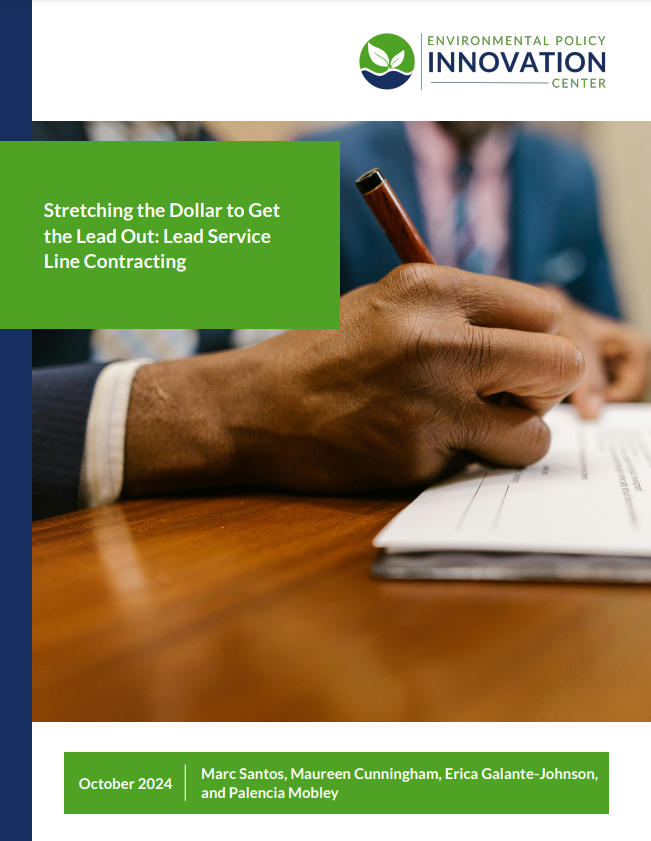Stretching the Dollar to Get the Lead Out: Lead Service Line Contracting
By Marc Santos, Maureen Cunningham, Erica Galante-Johnson, and Palencia Mobley
Many water utilities are just now starting the process of replacing lead service lines (LSLs), and will be required to do so within a ten year timeframe based on the recently released Lead and Copper Rule Improvements. However, there are many utilities that have been hard at work replacing LSLs over the past several years, and have gained hard earned knowledge for how to scale-up an LSL program. The actual contract terms with contractors performing the LSL construction activities is an important part of the process. EPIC conducted interviews with 26 utilities from 16 states and the District of Columbia in search of the best contracting practices to expedite LSL replacements, optimize costs, and grow the local workforce.
This contracting guide highlights key contracting components that utilities should consider including in their programs to ensure funding is utilized effectively. The guide summarizes best practices in the following three areas:
Strategies for Engaging with Contractors
Contract Language and Considerations
Alternative Lead Service Line Replacement (LSLR) Approaches


